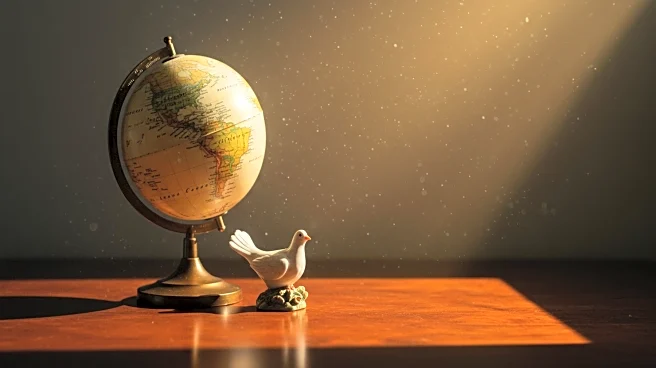What's Happening?
President Trump recently shared a personal reflection during an appearance on 'Fox & Friends,' where he revealed that his motivation for seeking to end the war in Ukraine is partly driven by a desire to secure a place in heaven. Trump expressed concern about his spiritual standing, stating, 'I want to try and get to heaven, if possible,' and acknowledged that he feels he is 'at the bottom of the totem pole' in terms of his spiritual journey. This candid admission is notable given Trump's public persona and the perception among some of his supporters that he is a messianic figure. The revelation has sparked curiosity about who might have influenced Trump's views on his spiritual status.
Why It's Important?
This revelation by President Trump highlights the intersection of personal beliefs and political actions. It suggests that Trump's motivations for international diplomacy may be influenced by personal spiritual considerations, which could impact his decision-making process. This admission could resonate with religious constituents who value leaders with spiritual motivations, potentially affecting public perception and support. Additionally, it raises questions about the role of personal faith in political leadership and decision-making, a topic that could influence discussions on the separation of personal beliefs and public duties.
What's Next?
The impact of Trump's statements on his political strategy and public image remains to be seen. It is possible that this revelation could lead to increased scrutiny of his motivations and decision-making processes, particularly in foreign policy. Political analysts and commentators may explore how personal beliefs influence leadership styles and policy decisions. Furthermore, Trump's comments could prompt reactions from religious leaders and communities, potentially affecting his support base.











